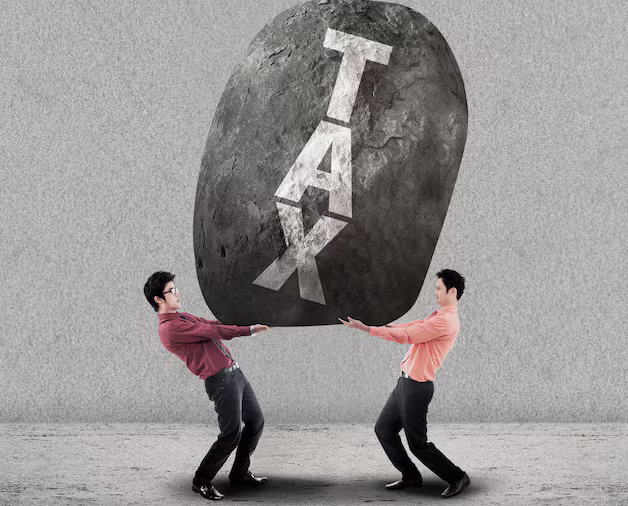A New Global Tax Reality Has Arrived - Be Prepared
The OECD's Pillar Two framework, which establishes a 15% Global Minimum Effective Tax Rate (ETR) for large multinational enterprises (MNEs), is transforming how companies organize and report profits in different jurisdictions. Although the UAE still presents a competitive 9% corporate tax rate, Pillar Two introduces an additional requirement for international compliance—especially for groups with consolidated revenues exceeding EUR 750 million.
Even if your UAE-based entity currently falls outside the scope, conforming to Pillar Two regulations is becoming essential for cross-border collaborations, attracting investors, and adhering to parent-country tax regulations.
At Finjuris Global, we offer guidance to clients in various sectors—including family offices, digital service providers, energy firms, venture capital-backed technology companies, and state-backed investment portfolios—on how to legally, structurally, and financially position themselves to adapt to the shifting landscape of global taxation.
What is Pillar Two?
Pillar Two is a component of the OECD’s Base Erosion and Profit Shifting (BEPS 2.0) initiative. Its aim is to guarantee that large multinational groups pay a minimum effective tax rate of 15% on profits, no matter where the income is generated.

- Multinational Groups with consolidated revenues of ≥ EUR 750 million
- Any group entity, regardless of its location, if it belongs to such a group
- Parent jurisdictions and host nations implementing Income Inclusion Rules (IIR) and Undertaxed Payments Rules (UTPR)
- Even entities in Free Zones and those exempt in the UAE may be liable for additional tax
- overseas if the overall group does not achieve the minimum threshold.
Our Pillar Two & Minimum Tax Solutions
Impact Evaluation & Scope Identification
We assess whether your entity or group based in the UAE falls under the Pillar Two regulations and analyze the relevance of the Global Anti-Base Erosion (GloBE) Model Rules.
Effective Tax Rate (ETR) Analysis
We analyze your group's tax positions by jurisdiction to determine if there is a potential top-up tax liability and identify the necessary steps to mitigate this risk.
Entity Categorization & Structural Guidance
We assist in categorizing your UAE Free Zone, Holding, or Operating entity within the Pillar Two framework, ensuring compliance with substance, reporting, and economic nexus criteria.
Financial Reporting Preparedness
We align your local accounting methods with GloBE’s deferred tax treatment and handling of temporary/permanent differences, facilitating clean audit trails and easing consolidation processes.
Safe Harbour Assessment
We review whether your entity is eligible for transitional safe harbours (for example, simplified ETR tests or de minimis thresholds) and advise on the necessary documentation to demonstrate compliance.
Governance & Record-Keeping
We aid in the preparation of internal memos, board resolutions, and tax documentation to withstand scrutiny from both UAE and international tax authorities.
Collaboration with Global Advisors
We collaborate with your parent company’s tax advisors and auditors to ensure consistent reporting, minimize redundancy, and maintain a defensible position across the group.
The Importance of Pillar Two - Even in the UAE
Global investor oversight is intensifying. If your group has international presence or foreign investors, adherence to minimum tax standards is increasingly becoming a crucial part of due diligence.
Benefits of Free Zones are not immune. Even if you benefit from a local 0% tax rate, you might incur top-up tax liabilities in your parent company’s jurisdiction unless properly structured and documented.
Your future operations could be subjected to these regulations. As revenue increases or if you are acquired by a larger group, being prepared for Pillar Two can facilitate a smooth transition without the need for restructuring.
Comprehensive Pillar Two evaluation customized for your organization and group
Calculations of Effective Tax Rates and modeling for top-up tax exposure
Recommendations for legal restructuring to prevent top-up liabilities
Internal governance structures that conform to GloBE Model Rules
Collaboration with worldwide tax, legal, and accounting teams
Why it matters?
Pillar Two is no longer a theoretical concept; it’s a global tax compliance mandate.Under the OECD’s BEPS 2.0 initiative, the implementation of a Global Minimum Tax (GMT) is reshaping how multinational corporations manage their tax structures, cross-border transactions, and financial reporting.
For businesses operating from the UAE, a traditionally low-tax jurisdiction, this means heightened scrutiny, additional reporting burdens, and the possibility of top-up taxes in foreign jurisdictions. Even if you're based in a Free Zone or enjoy domestic tax exemptions, your parent group’s global reporting obligations may bring you into scope.
Ignoring Pillar Two now could jeopardize investor confidence, trigger audit risks, or lead to unanticipated foreign tax exposure.
Why does it matter to your business?
Mitigates Group-Level Tax Leakage that could result from Free Zone or low-tax operations.
Future-Proofs Expansion for M&A, IPOs, or entry into higher-tax jurisdictions.
Builds Investor & Auditor Trust through compliance with global transparency standards.
Enables Cross-Border Consistency in tax treatment and reporting disclosures.
Avoids Reputational Damage from perceived non-compliance with global tax fairness standards.
Why should you choose Finjuris for Pillar Two Compliance?
Strategic Tax Defense. Regulatory Precision. Cross-Border Synergy. At Finjuris Global, we recognize that Pillar Two compliance is not just about filling forms; it’s about managing financial risk, protecting your group’s tax profile, and enabling sustainable global growth.
Our multidisciplinary team of international tax advisors, UAE-based compliance experts, and regulatory analysts helps you align your corporate setup with OECD and parent-country rules without undermining your business model.
Whether you’re a qualifying multinational or a Free Zone company under group scrutiny, we tailor compliance strategies that eliminate uncertainty and maximize advantage.
We help you
Analyze global Effective Tax Rate (ETR) positions across jurisdictions.
Prevent unintended top-up liabilities from undermining your Free Zone benefits.
Navigate safe harbors, transitional relief, and local exemptions.
Coordinate with parent entities and global tax teams to ensure groupwide alignment.
Maintain documentation that withstands FTA and foreign audit scrutiny.
What sets us apart?
Global-Local Compliance Integration
We bridge UAE-specific corporate tax strategies with OECD-aligned international rules, ensuring that your structure meets both local laws and global group expectations.
Pillar Two: Risk Modeling & ETR Simulation
We simulate realistic tax outcomes across multiple countries, identifying where top-up taxes might arise and recommending how to mitigate or avoid them through legal structuring.
Substance-Driven Structuring
We ensure your Free Zone or holding entities have real operations, qualified income, and defensible governance, all aligned with GloBE Model Rules and ESR mandates.
Multisector Experience
From sovereign funds and Web3 startups to global logistics chains and healthcare MNCs, our Pillar Two guidance is tailored to your industry and entity structure.
Coordination Across Borders
We work directly with your global tax advisors, CFOs, and audit teams to build a cohesive Pillar Two strategy, avoiding duplication and ensuring consistency in groupwide reporting.

FAQs
Contact us
Complete the form below and we will contact you to discuss your project. Your information will be kept confidential.

